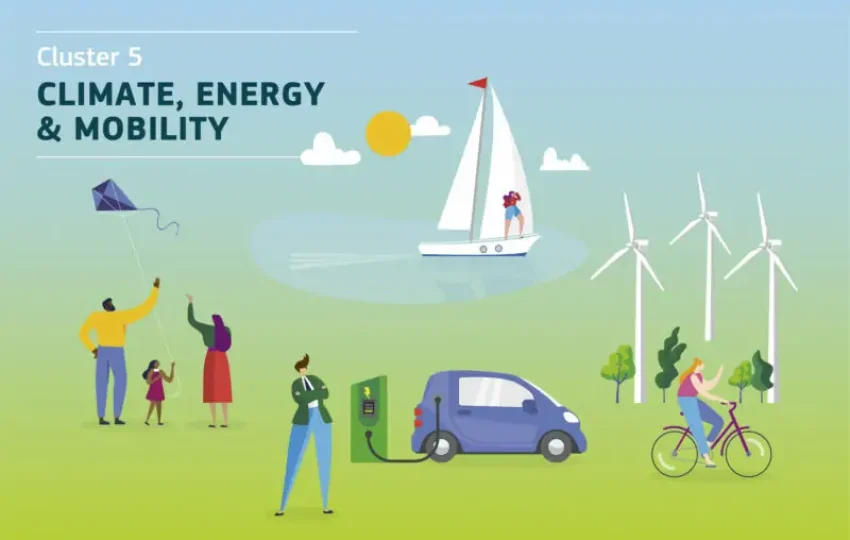Over the past few years, we have noticed a massive change in the world. Digital transformation is becoming real and it is all changing faster than we thought. All the latest technologies have a massive impact on businesses and the labour market.
In Europe, these changes are just as visible as everywhere else in the world. The European Union is making an effort to enhance businesses and prepare them for this massive change. As a result, we start to notice more and more actions being taken towards a Europe that will be able to welcome digital innovation.
The Digital Economy
We are now noticing a new type of economy rising. The digital economy. The EU will play a very important role in shaping that economy for all European citizens. Now more than ever, the EU is implementing, cross-policy initiatives aiming at boosting investments to reform all EU laws, non-legislative actions that will improve the Member States’ coordination and exchange of best practices.
EU citizens have a growing awareness and through EU actions there is now a greater focus in areas such as digitalization of industry and public services, investment in digital infrastructure and services, research programmes, cybersecurity, e-commerce, copyrights, and data protection legislation.
It appears that the EU is ready to support digital transformation even more in the years to come. The recent proposal for the Digital European Programme 2021-2027, is the very first-ever funding programme solemnly dedicated to supporting digital transformation in the EU.
Bringing the vision to life
Of course, this massive programme will not be enough to bring the vision to life. Further actions will be required that will focus on increasing infrastructure investments, add more value to innovation, boost digital champions and business digitalization and of course reduce existing digital divides and barriers in the digital single market.
The European Parliament will also be involved in the shaping of a policy framework aiming to help all citizens as well as businesses to fully exploit all the potential of digital technologies.
The Digital European Programme 2021-2027
We noticed that in the Multiannual Financial Framework (MMF) of 2014-2020, a plethora of different EU programmes contributed greatly to investing in digital infrastructures and services throughout the different stages of technological developments.
Now a new programme, specifically created for digital transformation if finally appearing. Using actions and deliverables that emerged from previews programme implementation actions as well as the budget that was not used, the EU is aiming at increasing the budget to foster digital transformation. The need appears to now be higher than ever and it is a valid policy in the EU agenda.
EU legislation
The European Commission’s white paper on the future of Europe underlines the challenges posed by the increased use of technology and automation that will affect all jobs and industries. In one of the scenarios discussed, it calls for the launch of new EU-wide projects to support digitalisation. In its reflection paper on globalisation, the Commission also underlined that, while still in the early phases of transformation, the challenge for Europe will be to innovate in strategic technologies and help workers to gain the right skills to avoid widening the gap in the labour market.
The focus is increasingly on actions where the EU can bring specific added value, concentrating on European digital projects whose scope and scale cannot be realised by individual countries alone. That is the case, for instance, in the areas identified under the future Digital Europe programme – the first-ever EU programme solely dedicated to digital transformation, which is part of the 2021- 2027 MFF proposals currently under consideration.
This funding programme has a proposed overall budget of €9.2 billion aimed at boosting investments (mainly in the five broad areas of supercomputing, artificial intelligence, cybersecurity, digital public services and advanced digital skills) 12 and at ensuring the wide use of digital technologies across economy and society. The expectation is that such extensive funding at EU level will reach the critical mass needed to attract large private investments.
New or updated legislation or guidelines that have been announced focus on the following areas:
- Robotics and artificial intelligence
- Safety and liability
- Access to and re-use of digital area
- Interoperability of electronic health record systems
- The digitalisation of the public sector
- Competition policy
- Standardisation
- Cybersecurity
- Modernise education and training systems
We currently have no open calls that fall under this new framework. Dates will be announced soon and organizations will have the opportunity to apply. For now it is safe to say that by studying the new policies and understanding the course of the EU for the 2021-2027 period.
Stay tuned with EUcalls.net to receive all the latest information on this new financial framework that will change the European labour market.


